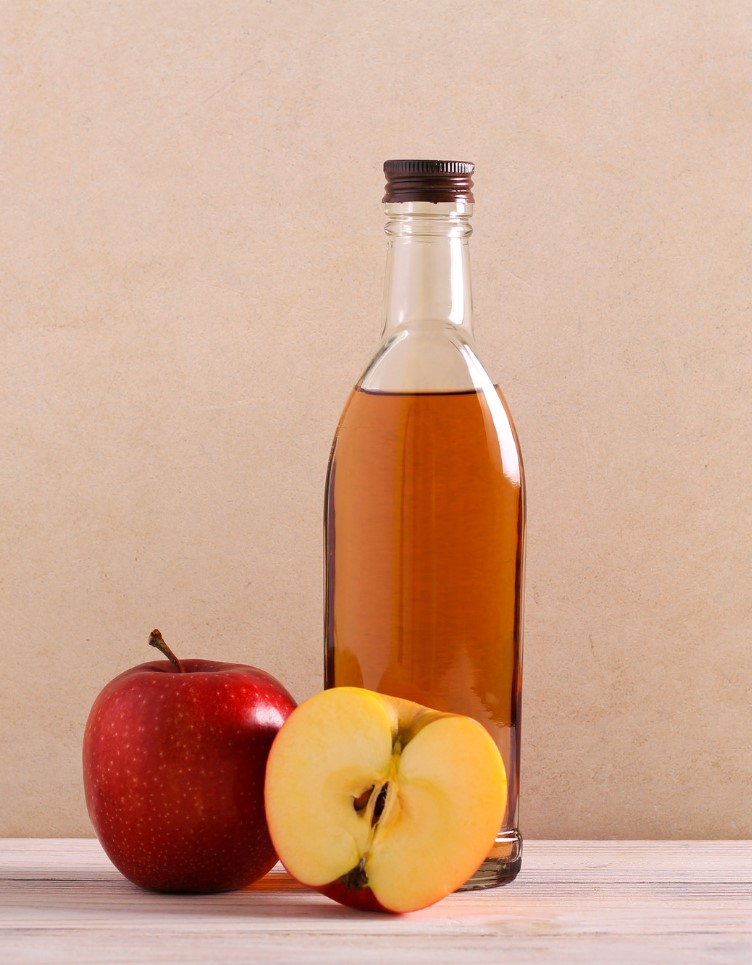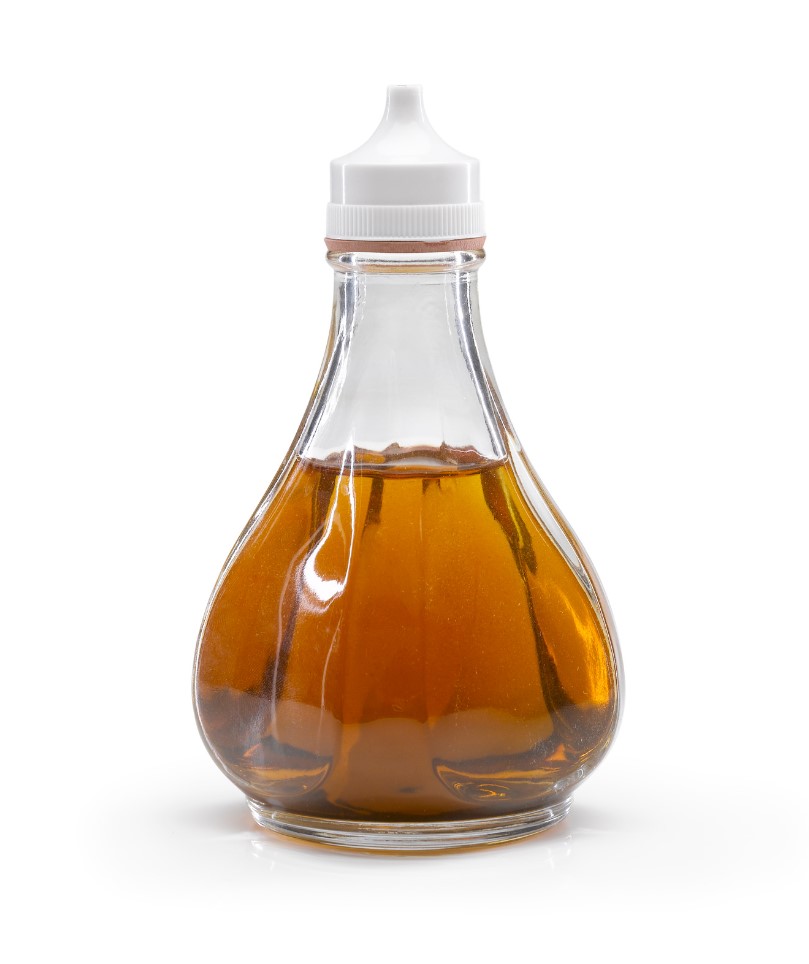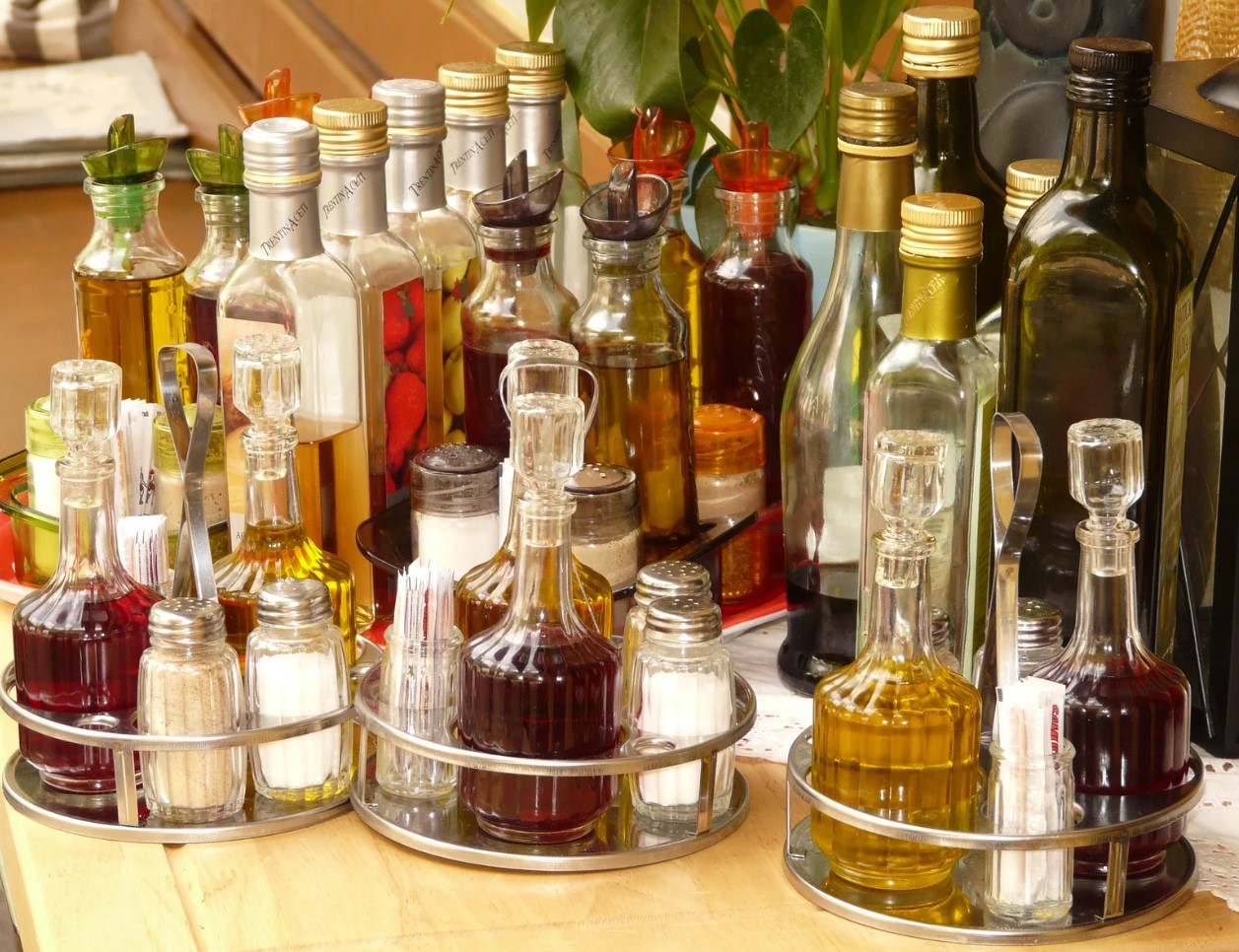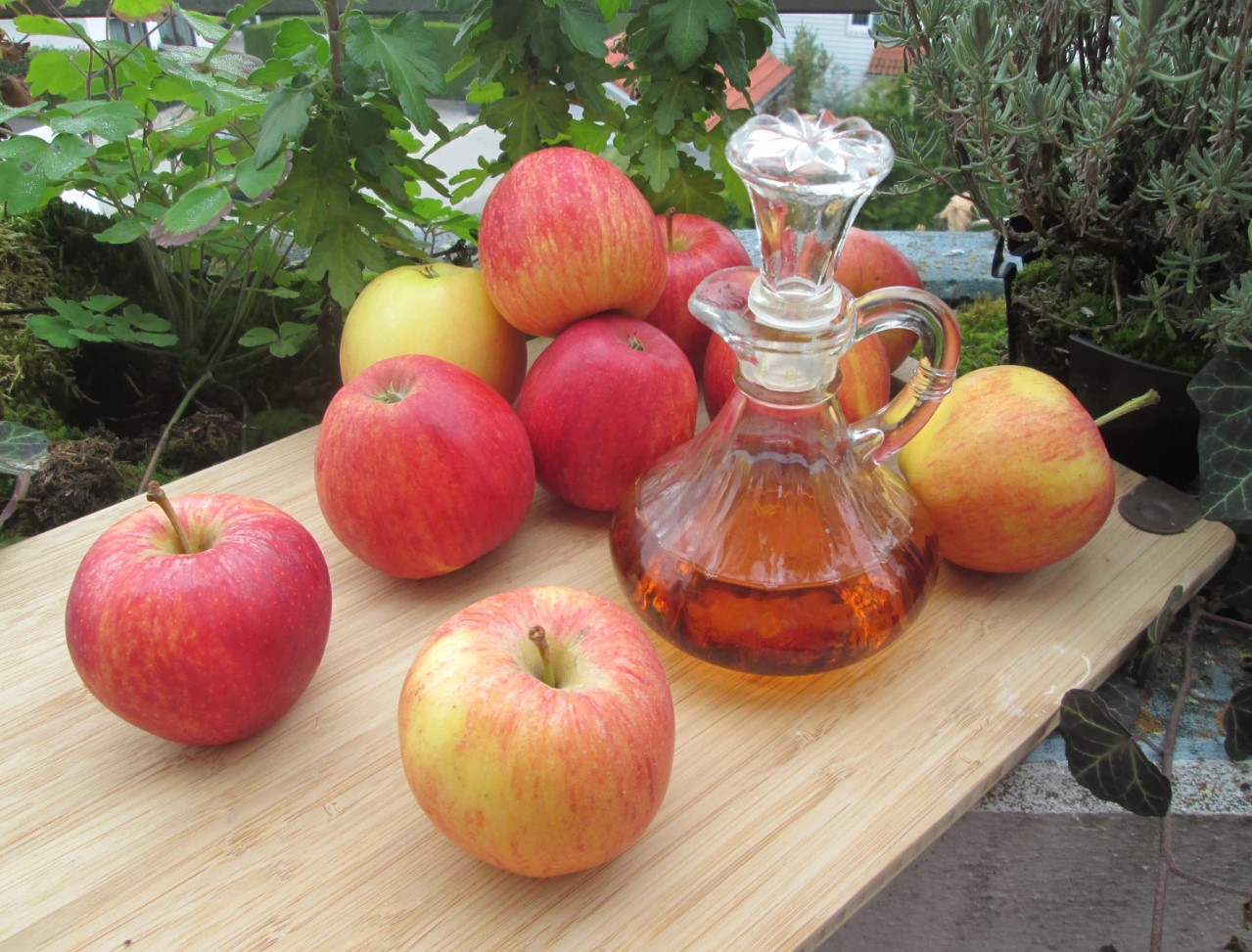Boosts Digestion And Metabolism
Vinegar has been used for centuries for its medicinal properties. One of the most notable benefits of vinegar that has been recently studied is how it can boost digestion and metabolism. When taken before or with meals, vinegar can stimulate the production of digestive enzymes, ultimately aiding in the breakdown of food.
Additionally, vinegar contains acetic acid which can help suppress the appetite and increase feelings of fullness. This may help with weight loss efforts by reducing overall calorie intake. Studies have also shown that vinegar can regulate blood sugar levels, lowering the risk of developing type 2 diabetes and obesity.
- Some ways to incorporate vinegar into your diet include:
- Adding it to salad dressings or marinades
- Mixing it into water or herbal tea and drinking it before meals
- Using it as a condiment for cooked vegetables or protein
It’s important to note that while vinegar can have numerous health benefits, excessive consumption can lead to negative side effects such as tooth decay and throat irritation. It’s recommended to consume no more than 2 tablespoons of vinegar per day and to dilute it with water when using it in beverages or as a supplement.
Overall, vinegar can be a useful tool in aiding digestion and metabolism. Along with a balanced diet and regular exercise, incorporating vinegar into your routine may lead to improved overall health and weight management.

May Aid İn Weight Loss
Vinegar has been used as a remedy for various ailments for centuries. One of its most recent claims to fame is that it may help in weight loss. While there is no magic potion for shedding those extra pounds, vinegar certainly has properties that can aid in weight loss.
How does vinegar aid in weight loss?
Vinegar contains acetic acid, which can suppress appetite and increase the feeling of fullness. This means that people who consume vinegar with their meals tend to eat fewer calories and feel satiated for longer periods of time. Additionally, vinegar has been found to decrease insulin levels, which can help in burning fat.
How can vinegar be consumed?
There are various ways of incorporating vinegar in one’s diet. Adding a tablespoon or two of vinegar to salads or consuming it as a dressing can be an easy way of consuming vinegar. Another option is to mix vinegar with water and honey, which makes for a refreshing and healthy drink. However, it’s important to note that vinegar, if consumed on its own, can damage tooth enamel. Therefore, it should always be mixed with water or consumed as a part of a meal.
- Vinegar can suppress appetite and increase the feeling of fullness.
- It can decrease insulin levels, which can help in burning fat.
- Adding a tablespoon or two to salads or consuming it as a dressing is an easy way of consuming vinegar.
Final thoughts
While vinegar can aid in weight loss, it’s important to remember that it’s not a magic solution. A healthy diet and exercise regimen are the most important factors in achieving and maintaining a healthy weight. However, incorporating vinegar in one’s diet can certainly provide a boost to weight loss efforts, as long as it’s consumed responsibly and in conjunction with a healthy lifestyle.
Helps Control Blood Sugar Levels
Vinegar has been used for centuries in the kitchen as a cooking ingredient, but did you know that it also has many health benefits? One of the most noteworthy qualities of vinegar is its ability to help control blood sugar levels.
Studies have found that consuming vinegar can improve insulin sensitivity and reduce blood sugar levels. This is especially beneficial for those with type 2 diabetes. When vinegar is consumed with a meal that is high in carbohydrates, it can help slow the absorption of sugar into the bloodstream. This prevents a spike in blood sugar levels and helps to maintain steady levels throughout the day.
- It is recommended to consume vinegar in moderation to prevent negative side effects such as tooth enamel erosion and gastrointestinal discomfort.
- You can add vinegar to your diet by incorporating it into salad dressings, marinades, or by diluting it in water and consuming before a meal.
- It is important to note that vinegar should not be used as a substitute for medication prescribed by a healthcare professional.
| Vinegar | Benefits |
|---|---|
| Helps control blood sugar levels | Improves insulin sensitivity and reduces blood sugar levels |
| Lowers cholesterol levels | Reduces LDL cholesterol levels and may improve heart health |
| Promotes healthy skin and hair | Has anti-inflammatory and antibacterial properties that can improve skin conditions and strengthen hair |
Adding vinegar to your diet can be a simple and effective way to help control blood sugar levels. However, it is important to consult with a healthcare professional before making any changes to your diet, especially if you have pre-existing health conditions. By incorporating vinegar into your diet in a safe and controlled manner, you can reap the benefits and improve your overall health.

Lowers Cholesterol Levels
Vinegar is commonly used as a condiment to add taste to our meals. However, it also has different health benefits that can help us maintain our overall wellbeing. One of the most significant benefits of vinegar is that it can help manage cholesterol levels. High levels of cholesterol can increase the risk of heart diseases, which can be fatal.
Vinegar has acetic acid, which can effectively lower triglycerides and total cholesterol levels. It also has antioxidants that can help prevent damage to our arteries. By lowering cholesterol levels, we can reduce the risk of developing cardiovascular diseases, heart attacks, and other health issues that can result from high levels of cholesterol.
- Vinegar can regulate the genes responsible for cholesterol production in the liver.
- Vinegar can help lower blood pressure which can also help lower cholesterol.
It is important to note that vinegar alone cannot solve high cholesterol levels. It needs to be coupled with a healthy lifestyle such as regular exercise and a balanced diet. Incorporating vinegar into our diet can help manage and lower our cholesterol levels, leading to a healthier heart and a reduction in the risk of developing heart diseases.
| Food to Avoid | Food to Eat |
|---|---|
| Fried food | Fruits and vegetables |
| Processed food | Lean meat and poultry |
| High-fat dairy products | Whole grains |
Aside from managing cholesterol levels, vinegar has other benefits that can help people maintain a healthy lifestyle. Incorporating vinegar into our lives can help us in various ways such as improving our digestive and metabolic processes, promoting healthy skin and hair, and acts as a natural cleaning agent. Start using vinegar in our everyday lives and experience its benefits today.
Promotes Healthy Skin And Hair
Vinegar has been used for various purposes for centuries. One of its many benefits is its ability to promote healthy skin and hair. When apple cider vinegar is applied to the skin or hair, it helps regulate the pH levels, which can reduce the risk of inflammation and infection. Vinegar is also rich in alpha-hydroxy acids, which can help exfoliate the skin, unclog pores, and promote blood circulation, resulting in a brighter and clearer complexion.
In addition to its benefits for the skin, vinegar can also promote healthy hair. A vinegar rinse after shampooing can help remove buildup and restore the natural pH balance of the scalp, which can prevent dandruff and promote healthy hair growth. The acidity of vinegar can also help smoothen and detangle the hair, resulting in less breakage and damage.
- To promote healthy skin, mix equal parts of water and vinegar and apply it to the face using a cotton ball. Leave it on for a few minutes and rinse off with water.
- To promote healthy hair, mix 1/2 cup of vinegar with 2 cups of water and use it as a final rinse after shampooing. Leave it on for a few minutes and rinse off with water.
| Benefits of Vinegar for Skin and Hair: |
|---|
| Regulates pH levels |
| Helps prevent inflammation and infection |
| Rich in alpha-hydroxy acids |
| Exfoliates the skin |
| Smoothes and detangles hair |
| Prevents dandruff |
| Promotes healthy hair growth |

Has Antibacterial And Antiviral Properties
Vinegar is commonly used as a condiment to add flavor to various dishes. What most people don’t know is that vinegar has antibacterial and antiviral properties. These properties make it useful beyond just adding flavor to meals.
Vinegar has been used as a natural remedy for thousands of years due to its healing properties. It contains acetic acid which can help kill bacteria and viruses. Acetic acid has a pH close to 2.5 which is too acidic for most harmful microorganisms to thrive in.
- Vinegar has been known to help treat ear infections. The acetic acid in vinegar can help kill bacteria that cause ear infections.
- Vinegar has also been said to help alleviate sore throat symptoms. Adding a tablespoon of vinegar to warm water and gargling with it can help reduce inflammation and kill harmful bacteria in the throat.
- Vinegar can also be used as a natural disinfectant. Simply mix equal parts of water and vinegar to create a solution that can be used to clean surfaces around the house.
When using vinegar as a disinfectant, it is important to remember that it is not effective against all types of bacteria and viruses. It is best used for cleaning surfaces in the kitchen and bathroom, but can also be used to disinfect toys and other commonly used items.
| Benefits of Vinegar’s Antibacterial Properties |
|---|
| Can be used as a natural disinfectant |
| Can help treat ear infections |
| Can alleviate sore throat symptoms |
Using vinegar as a natural disinfectant is not only better for the environment than using harsh chemicals, but it’s also a more affordable alternative. It’s important to always do your research before using vinegar as a remedy, as it may not be effective for all conditions. However, vinegar’s antibacterial and antiviral properties make it a useful tool to have in any household.
Can Reduce İnflammation
Vinegar: A Natural Anti-Inflammatory
Vinegar is one of the most versatile substances in our kitchens. It has been used for centuries as a natural remedy for a number of ailments, ranging from upset stomachs to cleaning surfaces. A lesser-known benefit of vinegar is its anti-inflammatory properties, which make it a popular home remedy for arthritis and other inflammatory conditions.
Studies have shown that vinegar can help reduce inflammation in the body. This is due to the acetic acid found in vinegar – this acid has been found to suppress the inflammation-causing enzymes in the body. Additionally, vinegar has been found to contain antioxidants, which can help protect the body against damage caused by inflammation.
- Adding vinegar to your diet may help reduce the risk of inflammatory diseases like arthritis.
- Incorporating vinegar into your cooking can help to reduce inflammation in your body.
- Vinegar can be used as a topical treatment for inflammation. Simply dilute the vinegar with water and apply it to the affected area.
| Type of Vinegar | Acidity Level (%) | Best Uses |
| Apple Cider Vinegar | 5% | Detoxifying, salad dressing, marinades, sauces |
| Balsamic Vinegar | 6% | Salad dressing, marinades, sauces, roasted vegetables, cheese |
| Red Wine Vinegar | 5% | Salad dressing, marinades, sauces, pickling, roasting |
While vinegar can be a helpful tool in reducing inflammation, it is important to speak with a healthcare professional about any concerns you may have. Incorporating a balanced diet and exercise routine into your lifestyle can also help to reduce inflammation in the body.

Supports Detoxification
Supports Detoxification:
Our bodies are constantly exposed to toxins every day, from the air we breathe to the food we eat. Detoxification is the process of removing harmful substances from the body. There are many ways to support the body’s natural detoxification process, and one of the most effective ways is by incorporating apple cider vinegar into your diet.
- Vinegar contains acetic acid, which helps to stimulate the liver and aid in the body’s detoxification process.
- It can also help to balance the body’s pH levels, which is important for overall health and detoxification.
- Apple cider vinegar is rich in antioxidants, which can help to protect the body from harmful free radicals.
One of the easiest ways to incorporate apple cider vinegar into your diet is by adding it to your salads. You can also use it as a marinade for your meats or vegetables, or mix it with some water and honey for a refreshing drink.
| Ingredients | Instructions |
|---|---|
| 1 tablespoon of apple cider vinegar | 1. Mix all ingredients together in a glass |
| 1 tablespoon of honey | 2. Add 8 ounces of water |
| 8 ounces of water | 3. Stir well and enjoy! |
Overall, incorporating apple cider vinegar into your diet can be a simple and effective way to support your body’s natural detoxification process. As with any dietary changes, it’s important to talk to your doctor before trying anything new.
Can İmprove Heart Health
Vinegar has been used for centuries not only as an ingredient in cooking but also as a home remedy for various health conditions. One of its benefits includes improving heart health. Vinegar contains acetic acid which is believed to have positive effects on the heart and circulatory system.
Vinegar can improve heart health by:
- Lowering blood pressure: Some studies suggest that consuming vinegar can help reduce high blood pressure which is a risk factor for heart disease.
- Lowering cholesterol levels: High cholesterol is another risk factor for heart disease. Vinegar can help lower LDL or “bad” cholesterol levels in the blood which can help reduce the risk of heart disease.
- Reducing inflammation: Chronic inflammation in the body can damage the heart and blood vessels. Acetic acid found in vinegar has anti-inflammatory properties that can help reduce inflammation and improve heart health.
- Boosting circulation: Vinegar has been shown to improve blood flow and circulation which is important for a healthy heart.
It is important to note that while vinegar has some benefits for heart health, it should not be considered a cure-all. A healthy diet and lifestyle are still the most important factors in maintaining good heart health.
In conclusion, adding vinegar to your diet can have positive effects on heart health. Incorporating it into your meals or taking it as a supplement can help lower blood pressure and cholesterol levels, reduce inflammation, and improve circulation. However, it is always best to consult with a healthcare professional before making any changes to your diet or taking supplements.

Can Ease Sore Throat And Cough
When it comes to alleviating sore throat and cough, people have been turning to vinegar for centuries. The acetic acid in vinegar has potent antibacterial properties that can help kill the germs causing the infection. Moreover, it can help soothe the irritated throat by reducing inflammation and restoring the pH level of the mucous membrane.
One of the most popular ways to use vinegar for sore throat and cough is by making a gargle solution. Simply mix a tablespoon of apple cider vinegar in a glass of warm water and use it to gargle for 30 seconds. Repeat the process three times a day, and you’ll see a significant improvement in your symptoms in no time.
- Vinegar is a natural antiseptic agent that can help kill the germs causing the infection.
- The acetic acid in vinegar can help restore the pH level of the throat and reduce inflammation.
- You can use vinegar as a gargle solution to alleviate sore throat and cough.
| Ingredients | Method |
|---|---|
| 1 tablespoon of apple cider vinegar | Mix the vinegar in a glass of warm water and use it to gargle for 30 seconds. Repeat the process three times a day, and you’ll see a significant improvement in your symptoms in no time. |
Another way to use vinegar for sore throat and cough is by drinking a teaspoon of raw vinegar mixed in a glass of water. It may taste a little unpleasant, but the vinegar can help reduce the inflammation in your throat and improve your immune system’s response to the infection.
Apart from these remedies, you can also use vinegar as a natural cleaning agent for your home. Vinegar has the ability to kill germs and disinfect surfaces, making it a great choice for cleaning your kitchen and bathroom.
So, the next time you’re feeling under the weather, try using vinegar for alleviating sore throat and cough. It’s a natural, safe, and effective remedy that has been used for centuries.

Acts As A Natural Cleaning Agent
Did you know that vinegar can be used as a natural cleaning agent? Not only is it safer for your family and the environment, it’s also cheaper than most cleaning products on the market today. Here are some ways to use vinegar for cleaning:
- Add vinegar to your laundry to remove stubborn stains. Just pour some in the washing machine with your detergent and you’re good to go!
- Clean your windows with vinegar for a streak-free shine. Mix equal parts water and vinegar in a spray bottle, then wipe away with a microfiber cloth.
- Mix vinegar and baking soda to create a natural scrub for sinks, tubs, and countertops. Just sprinkle baking soda onto the surface then spray with vinegar. Scrub away the dirt and rinse with water.
Vinegar is also great for removing odors from your home. It’s a natural deodorizer and can be used in a variety of ways:
- Put a bowl of vinegar in the fridge to remove lingering smells.
- Soak a small cloth in vinegar and place it near the litter box to reduce the smell of your cat’s waste.
- Wipe down your cutting board with vinegar to remove any lingering smells from food.
Finally, vinegar is a great alternative to harsh chemicals when it comes to cleaning your floors. Just mix equal parts water and vinegar in a mop bucket and use as normal. Not only will your floors be clean, but they’ll also be free from any chemical residue.
| Benefits | Ways to Use Vinegar |
|---|---|
| Safe for family and the environment. | Laundry, windows, scrub sinks and countertops. |
| Natural deodorizer. | Bowl in fridge, near litter box, wipe down cutting board. |
| Alternative to harsh chemicals when cleaning floors. | Equal parts water and vinegar in a mop bucket. |
There you have it – vinegar is an eco-friendly, wallet-friendly way to clean your home. Give it a try and see the difference for yourself!
Can Preserve Food For Longer
Vinegar is a common household ingredient that has many versatile uses. One of its most useful properties is its ability to preserve food for longer periods of time. In fact, vinegar has been used as a food preservative for thousands of years. This is due to its high acetic acid content, which can inhibit the growth of harmful bacteria and mold that can spoil food.
Vinegar can be used to preserve a variety of foods including vegetables, fruits, meats, and even eggs. It is a popular ingredient in pickling recipes, which involves soaking vegetables or fruits in a vinegar solution with added salt, sugar, and spices. The acidity of the vinegar helps to preserve the texture and flavor of the food, as well as preventing spoilage.
Another way vinegar can preserve food is by using it to make homemade salad dressings or marinades. Adding vinegar to these recipes can not only enhance the flavor of the dish, but also extend its shelf life by inhibiting bacterial growth. Vinegar can also be used as a natural alternative to chemical preservatives found in many processed foods.
- To preserve food with vinegar, it is important to use the right type and amount. White vinegar, apple cider vinegar, and balsamic vinegar are commonly used in food preservation. The amount of vinegar needed will depend on the type of food you are preserving and the acidity level required.
- It is also important to properly sterilize the jars or containers used for preserving food. This can be done by boiling the jars in hot water or running them through a dishwasher cycle before use.
- Proper storage of the preserved food is also key to ensuring its longevity. The jars or containers should be kept in a cool, dark place such as a pantry or cellar. It is important to check the jars for signs of spoilage such as mold or an off odor before consuming the preserved food.
Vinegar’s ability to preserve food for longer periods of time is a valuable asset for anyone who wants to reduce food waste and save money. With its natural preservative powers, vinegar can not only help to increase the shelf life of food, but also add flavor and health benefits to your meals.
Helps Remove Stains From Clothes And Carpets
Vinegar is a versatile and natural household cleaner that can be used for various purposes, one of which is removing stains from clothes and carpets. It is a cost-effective and eco-friendly alternative to chemical-laden cleaning products that can harm both the environment and your health.
One of the many benefits of using vinegar as a stain remover is that it works on a wide range of stains, such as coffee, tea, wine, grease, blood, and even pet urine. To remove a stain, you can mix equal parts of vinegar and water and apply the solution to the affected area, let it sit for a few minutes, and then rinse or blot it with a clean cloth. You can repeat the process until the stain is gone, but make sure to test the vinegar solution on a small, inconspicuous area first to avoid damaging the fabric or carpet.
- Tip: For tough stains, you can add baking soda or salt to the vinegar solution to boost its cleaning power. You can also use undiluted vinegar for certain stains, but be careful not to overuse it as it can weaken some fabrics or fade colors.
| Types of stains | Vinegar solution | Other tips |
|---|---|---|
| Coffee or tea | Equal parts vinegar and water | Blot instead of rubbing |
| Grease or oil | Undiluted vinegar or vinegar and baking soda/salt | Use a clean cloth or paper towel to absorb the excess oil before applying the vinegar solution |
| Blood or urine | Equal parts vinegar and water | Cold water, salt, or hydrogen peroxide can also help |
Aside from being a stain remover, vinegar can also freshen up your clothes and carpets by eliminating odors and bacteria. You can simply add 1/2 to 1 cup of vinegar to the rinse cycle of your washing machine or spray a vinegar solution onto your carpets and let it air dry. Not only will your house smell better, but you will also reduce your exposure to harmful chemicals.
In conclusion, vinegar is a natural and effective way to remove stains from clothes and carpets without breaking the bank or damaging the environment. Just remember to use it in moderation and test it first on a small area to ensure its safety and efficacy. Say goodbye to stains and hello to a greener, cleaner home!
Can Repel İnsects
Vinegar has a wide range of uses in your home beyond just cooking. One of its most useful properties is as a natural insect repellent. Vinegar can be used to repel a variety of insects including ants, fruit flies, mosquitoes, and even spiders. Using vinegar as a natural insect repellent is an effective and eco-friendly alternative to chemical pesticides.
One of the main reasons vinegar is so effective at repelling insects is because of its strong scent. Insects are repelled by the strong smell of vinegar, which interferes with their sense of smell and makes it difficult for them to find their food sources. Additionally, vinegar is acidic, which can also be a deterrent for insects.
If you are looking to use vinegar as an insect repellent, there are a number of ways to do so. One of the easiest methods is to simply fill a spray bottle with vinegar and spray it around the areas where insects are most likely to be found. You can also use vinegar as a cleaning agent to eliminate any food sources that may be attracting insects.
- Tip: If you want to repel ants, try placing white vinegar near the areas where they are entering your home. The smell of the vinegar will deter them from coming in.
- Tip: To repel mosquitoes, mix equal parts vinegar and water and spray it on your skin or clothing.
| Vinegar Insect Repellent Recipes: |
|---|
| Ant Repellent: Mix equal parts white vinegar and water and spray around your home or directly onto the ants’ entry point |
| Mosquito Repellent: Mix equal parts white vinegar and water and spray on your skin or clothing. You can also add a few drops of essential oils, such as citronella or lemongrass, for added effectiveness. |
| Fruit Fly Trap: Fill a jar with apple cider vinegar and a few drops of dish soap. The fruit flies will be attracted to the vinegar and the dish soap will trap them. |
Overall, vinegar is a versatile and effective insect repellent that can be used in a variety of ways around your home. By using vinegar as a natural insect repellent, you can avoid harsh chemicals and keep your home pest-free in an eco-friendly way.
Can Be Used As A Natural Weed Killer
Are you tired of using harsh chemicals to get rid of pesky weeds in your garden? Did you know that vinegar can actually act as a natural weed killer? That’s right, the same vinegar you use in your kitchen can be a safe and effective way to keep your garden weed-free.
The acetic acid in vinegar is what makes it an effective weed killer. It strips away the protective coating on the leaves of the weed, eventually causing it to dry up and die. You can use either white vinegar or apple cider vinegar, but keep in mind that the higher the acetic acid content, the more effective it will be. A solution of 10-20% vinegar mixed with water is generally strong enough to kill most weeds.
- Be sure to use caution when applying vinegar to your garden as it can also damage your plants. Avoid spraying directly on your desirable plants and use a spray bottle or brush to carefully apply to the weeds only.
- If the weeds are particularly stubborn or persistent, you may need to apply vinegar multiple times. Keep in mind that this method may not be as effective for large, established weeds with deep root systems.
- Using vinegar as a natural weed killer is not only effective, but also eco-friendly and cost-effective. You won’t have to worry about harmful chemicals leaching into the soil and it’s much cheaper than commercial weed killers.
Next time you’re in the garden and notice a pesky weed, consider using vinegar as a natural and effective way to keep your garden looking its best.